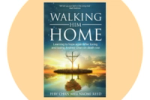House Church: The end of us four & no more?
Aaron Lewendon - Category Manager
The House Church movement was a major part of Christian expression in the 1970s. But what has happened since, and what what has been the long-term result of the fervour and enthusiasm of the early days of the movement?

House Church
Creative commons [spiritz]
Preferring terms such as “small missional communities”, “simple church” and “organic church”, Peter Farmer from Nottingham believes that, when it comes to what has previously been known as 'house church', phrases and caricatures such as ‘us four and no more’ are out of date.
Explaining that the last ten years has seen a resurgence in Christians exploring simple church, Peter says the people he is connecting with see mission as their primary purpose.
Citing contemporary authors such as Cape Town based writer of You See Bones I See An Army: Changing The Way We Do Church Floyd Mcclung, Peter believes this new movement is having a big impact across the world.
Re-thinking church
The majority of Peter’s radical re-thinking centres around creating small missional groups that meet in homes and reach out to their local communities in practical ways.
“On a Sunday morning most people are in bed, children see their separated parents or have their sports day. So when we have church services on a Sunday morning, in most communities no one is even awake. So to have this idea that if you pray enough then revival will come and everyone will suddenly fill the buildings I think is a misguided concept.”
Peter believes gathering a group of Christians in one place, like most churches do on a Sunday is “counter productive”.
“They need to be scattered into all the different spheres of society and people groups….A gathered church will always have a flavor a style of worship and a style of talk. That becomes more difficult when you reach into different sections of society. For example if you were to make disciples in the Muslim context in this country it would be difficult to see them gathered into the white middle class church.”
One of the most surprising aspects of this new simple church movement is the majority of people that Peter trains in how to embrace simple church are from traditional, mainline Anglican, Methodist and Baptist churches.
“There’s no competition or dividing line,” he says. “There’s no separatist movement. More and more people are discovering these principles”.
For Peter, the question is not about "big churches vs little churches", but how many people each church can effectively send to their communities as communicators of the gospel.
Building big barns
Tony Goddard is an elder at Kingsgate Church in Peterborough. The church regularly attracts 1600 people on a Sunday morning but also has much smaller mid-week house groups. "We like to think we’re big enough to have an impact and small enough to care," Tony says.
"Right in our city centre we have a cluster of small groups and part of their outreach is into that community. People would establish relationships with that cluster and feel comfortable with those guys on their own turf as it were and one day be ready to come on a Sunday morning."
Tony is aware of the pros and cons of being a larger church. He says the church's size tends to put religious people off more than those who are unchurched. He believes those used to a small church environment can still fit in but wants people "blessed, not neccesarily under our wing". The church also discourages people from joining for the sole reason that Kingsgate is "big".

Peter Farmer
Advocate of simple church
Peter has a theory about large churches such as Kingsgate.
"When there was famine in the rest of the world, Joseph was sent to Egypt and he raised up barns for everyone else. Then his fellow Israelites came and got food from him."
"There’s a time to raise up big barns when there's famine in the rest of the areas. In the 90s God seemed to raise up big barns, some of the new churches became big barns and warehouse churches. These big barns emerged that were full of resources and everyone flocked to them in the city centres.
"Most city centres have big churches, between 500 and 2000 people. They are usually made up of lots of leaders, middle class people, young professionals and students. That’s great and that’s obviously something God has done. However after Joseph died, there came a point when the Pharoah spirit took over and God was saying 'let my people go'. I feel we’re at that time in the UK now."
"Those barns were good and still are good but the point is all the resouces can’t be held in one place, they need to be scattered to nourish the desert so people can enter their promised land, we’re at a stage now where there are whole sections of society that are completely unreached."
But while Peter's view of house church is evangelism focussed, not all house churches place such an emphasis on mission.
Building Biblical Church
Beresford Job starts our interview by laughing about how his surname translates as meaning “hated and persecuted”.
“If you’re involved in something that’s totally not involved with the establishment, you do end up getting a bit of a bad name,” he admits.
Beresford is a leader of Chigwell Christian Fellowship. Aware that he comes across as being radical, but nevertheless unashamed of his beliefs, Beresford has dedicated much of his adult life to building what he believes to be “biblical church”.
It’s a concept he says is not found in any of the traditional denominations and movements.
I found Beresford through his website house-church.org, but the term has caused some confusion in the past.
“We wouldn’t want anyone to get the idea we’re a small independent church that meets in a house. We don’t have services, we don’t have hierarchy’s, we don’t have leaders in the sense unbiblical churches do.”
“Some of the worst Christianity I’ve seen has been in house churches and one of those flavours is the us four no more."
“I would be far more vocal in critiquing house church than traditional churches. There are so many wonderful believers who are part of unbibilical churches. We’re great friends, we don’t argue about it but sadly when it comes to unbiblical house churches the ratio of loving godliness going up to exclusive bigotry is a far higher ratio in house churches than it is in institutional churches. It breaks my heart.”
Strong words. But unlike Peter, Beresford doesn’t see the 25 people that make up his Biblical church as uniting specifically for mission, though he does say his group has seen churches around the world birthed through their ministry together.

Beresford Job
A leader of Chigwell Christian Fellowship
“The New Testament writers didn’t consider evangelism to be the job of the church. It was the job of the people who comprised the church. None of us claim to be evangelists so none of us proactively evangelise but we’re keenly away that what the Bible teaches is if we lead a Godly life, those who know us in our normal day to day lives, will see our good works and give glory to our father in heaven.
"We have subsequently shared the gospel with hundreds of people over the years," the full time minister adds.
Beresford admits that of the few who have become Christians over the past two decades, a majority have joined “institutional” churches, as opposed to staying with the Biblical church model.
Scripture alone
Convinced that "scripture must be the final authority", none of the women in the church are permitted to teach or become an elder. Beresford also believes Paul’s instruction for women to have a “head covering” still stands. Services are out, rather everyone will bring a contribution and partake in the Lord’s supper as part of a meal.
What’s Beresford’s view of other churches in the UK? “If you look at the churches that are really growing, I’m not sure if they’re actually preaching the gospel. They’re the health and the wealth ones. Usually exploiting the poor, particularly the black churches in East London.”
“When you’re promising whole areas of the inner city that if they come into your building and come to your church that God will prosper them and all they have to do is give to the church... It’s sick and evil."
Has he personally witnessed this? “No, but I’ve known many people who have…I’ve been on the Christian scene 40 years so there’s nothing I haven’t seen.”
Beresford reveals Chigwell Christian Fellowship used to visit other churches but were “so sickened” by some of what they saw and came under heavy criticism, even being termed a “sect”, that they stopped.
“We just love fellowshipping with believers, we don’t care what church they go to.” Beresford explains, keen to emphasise that the type of church people attend or set up is not a primary, salvation based issue.
It seems there are as many ways of doing house church, and this has led to plenty of different descriptions. Organic church, simple church, biblical church and house church are rarely considered synonyms and Peter and Beresford have much to disagree about.
“There’s no controversy about what churches were like in the New Testament.” Beresford emphasizes, pointing out that the Bible gives plenty of description as to how the apostles conducted themselves. Indeed, a house church model has often been praised as being closer to Paul's vision of church than today's megachurches. But the main area of controversy currently being debated is how much of the New Testament example of church is pure example, and how much is doctrine to be followed and imitated. That vital discussion has been taking place since the birth of the Church, and there's no sign of it slowing down.
Both Peter and Beresford believe there are clear positives to simplifying church expression. "Simple churches can meet anywhere, you wouldn’t need a large budget, people can gather in a café or work environment or school and it can spread," Peter explains, adding: "The principles of simple church are to do with the mandate to multiply."
Latest Blogs

Bible
Choosing The Right Bible
With more than 20 English Language translations each available in 25 or more different editions the choice of Bibles excites and bewilders. Choosing the right Bible for you is important - even if you already have more than one.

Spiritual Growth
LENT COURSES - How to choose the right one for you
Long overshadowed by the celebrations of Easter Sunday, Lent is being rediscovered as a sacred time of reflection and renewal in its own right and a time of preparation for the joyous seasonal finale.

Featured
Stocking Fillers
Here’s our pick of the top 3 Stocking Fillers this Christmas. You can find even more at our Christmas Store.

News
Where to Watch the New C.S. Lewis Film
Heading to a screen near you soon, The Most Reluctant Convert is a feature-length movie about the life and faith of one of England’s greatest Christian writers and thinkers: C.S. Lewis.

Interview
Author Interview with Feby Chan and Naomi Reed
Feby tells her compelling story in her book Walking Him Home. After wrestling with grief and suffering, she shares how God’s healing and faithfulness is enabling her to step into her new life and ministry.

Featured
3 Reasons People Don’t Read the Bible
We are currently in a strange situation. Bible sales are up, but the number of people reading the Bible is going down. Even stranger, this situation is nothing new. There has always been a difference between the number of people who own a Bible and the number of people who regularly read their Bibles.
